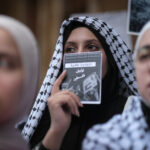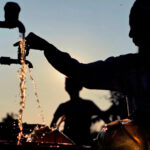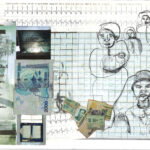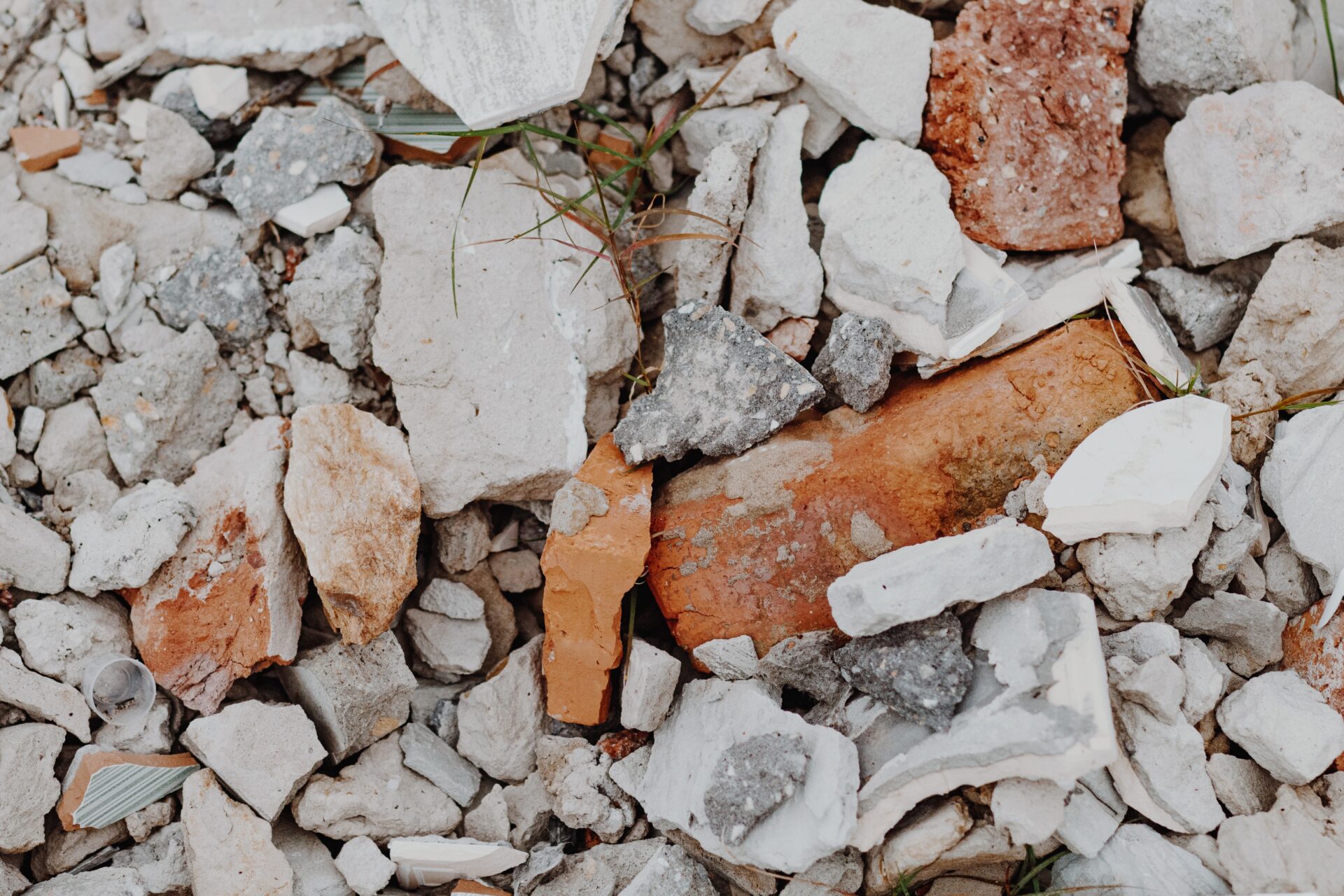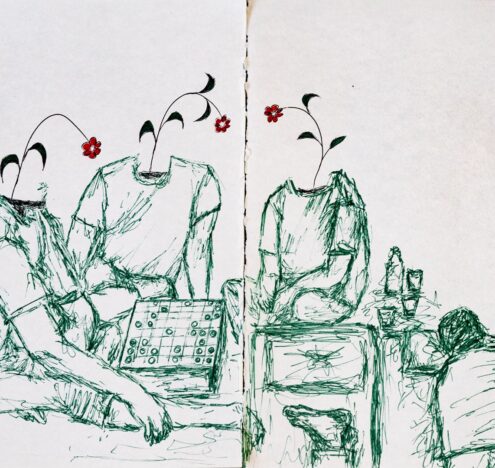In the ashen light of dawn, beneath a sky marred by the smoke of the ongoing conflict in the Gaza Strip, Sahar Abo Abdo, a 28-year-old resident of Gaza City, grappled with the urgency of a life-changing decision. The Israeli military’s call to her mother-in-law’s phone had been stark and foreboding, severing the last threads of normalcy that clung to her family’s existence on Hamid Street. “Evacuate,” an Israeli soldier demanded, “or risk impending death.” Such calls bring a terrifying intimacy to this conflict. Often they come in the form of an automated message to all Gaza residents in the north. But in some cases, such as for Sahar, an Israeli soldier calls and gives the full name and location of the person and tells them that their house will be hit in a few minutes.
Sahar’s recounting of the experience conveyed a visceral fear; her voice was a vessel for the anxiety that coursed through her and her community. “They gave us from 10 am to 2 pm to flee,” she remembered. “Raise your hands and announce your surrender. You are civilians. Save yourself!” The words had been as much a command as a harbinger of the violence to come. Despite the Israeli acknowledgment of their civilian status, the call was followed shortly after by a missile strike at their home.
Amidst the ensuing chaos, Sahar and her family, including her five-year-old son Khaled, frantically pared their lives down to what they could carry on their backs. “We reduced our belongings, knowing we couldn’t take it all,” Sahar said, her mind racing as she prioritized survival over sentiment. Money was concealed within the sanctuary of socks, and jewelry clung to their bodies — a silent act of defiance against the pillage of war.
Traumatic Reminiscence
Their exodus was a grim procession that brought to mind traumatic memories of the Nakba, the 1948 catastrophe that had carved a deep scar into the Palestinian consciousness. It felt like history was repeating itself on the streets of Gaza as Sahar, with one hand raised and the other clutching her identity papers, made her way through the rubble-strewn streets.
“The way was macabre — felt like the day of resurrection,” Sahar whispered, recounting the horror of their passage. The road was strewn with the remnants of lives cut brutally short. “Tens of corpses, including children and women. It was like the Nakba our grandfathers spoke of, happening to us again.” The path was a gallery of the war’s atrocities, each body a silent testament to its brutality. “I was about to throw up but had to hold it inside as they might shoot me.”
In the turmoil, Sahar was separated from her husband, lost amidst a sea of frightened faces. The fear that he might be among the fallen was paralyzing, yet she had to press on as Israel ordered them not to turn their faces around. “My heart was terrified. I wasn’t sure if he was alive or dead,” she confessed, revealing the stark terror of that moment.
Khaled’s exposure to such brutality was a mother’s worst nightmare. “He saw things no child should,” Sahar recounted, her voice laden with sorrow. “I tried to cover his eyes and asked him, ‘cover your head with my abaya, don’t watch,’” I begged him. Young Khaled clung to her clothes, a lifeline in the chaos. “I couldn’t even hold hands with my son, so I asked him to hold on to my clothes and not to let me go, whatever happens,” she said. Her protective maternal instinct overshadowed her own fear.
As the world looks on, this stark reality unfolds in real-time, a testament to a past that never fully passed and a present that is all too painfully familiar.
Their arduous walk of about 12 kilometers (about 7.5 miles) to Nuseirat brought them face-to-face with the indiscriminate nature of war. The elderly collapsed, succumbing to exhaustion and fear, as Israeli soldiers stood by, watching dispassionately. Dehydration and exhaustion took their toll, especially on young Khaled. “By mistake, I put the water bottle in the bag. My son was thirsty and sore from crying. I could not give him water,” Sahar recalled, her voice breaking with guilt. “Please, my son, bear for a little longer,” she whispered, her plea laden with love and pain.
An Untenable Evacuation
When she finally reached the relative safety of Nuseirat, Sahar clung to the hope of reuniting with her husband. “I stood praying to meet my husband’s family.” The assurances from media personnel that the Israeli forces had not targeted those fleeing offered a small comfort in the midst of despair.
When she arrived in Nuseirat, she stood waiting for her husband in the main square, hoping and praying that he would see her. Finally, they reunited. They then traveled to stay with relatives in Khan Yunis.
Their narrative stands as a stark emblem of the enduring humanitarian crisis in Gaza. UN Secretary-General António Guterres pronounced the evacuation to be untenable. Civilians, caught between the immediacy of survival and the ruthless march of war, face choices that hold unbearable repercussions.
Sahar’s ordeal, etched with the sorrow of displacement, mirrors the experiences of tens of thousands in Gaza who are reliving the harrowing echoes of the Nakba. As the world looks on, this stark reality unfolds in real-time, a testament to a past that never fully passed and a present that is all too painfully familiar.


